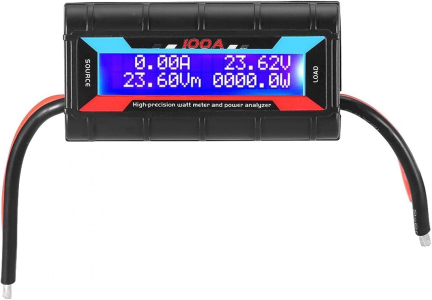Refueler
Well-Known Member
thanks but cables were replaced 3 months ago. Indeed 80Ah is very little but as said fully charged it should provide the needed 3 AMps for some hrs
Just to comment .... the 3A you mention ... most likely the average once temp is down ... but getting there Amps will be higher. Also as the power source - the battery voltage drops - the amps increase to maintain the Watts demand of the unit.
Lets say you engine running and alternator is pumping out 14.4v .. and you register 3A to fridge..... 43.2W (seems low !)
Stop engine ... battery voltage drops to 13.2v ... to maintain same wattage - now will be 3.2A
Battery reduces to 12.5v .... amps now 3.5A
OK - the increase in amps may not seem much ... but remember that change applies to all items on board ... amps increasing when voltage drops ..

